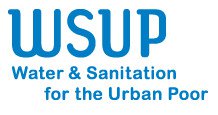Evaluation of WSUP's capacity development interventions in Antananarivo and Maputo
This project will provide an evaluation of the impact of Water and Sanitation for the Urban Poor's (WSUP) capacity development interventions in Antananarivo and Maputo.
Under a project funded by the Bill and Melinda Gates Foundation (BMGF) that started in 2009 and will continue until March 2012, and now under a USAID-funded project with components that build on the work started by BMGF, WSUP has worked extensively in Antananarivo and Maputo, which are key cities in WSUP's current portfolio.
These interventions have involved:
- supporting WASH interventions in various low-income disctricts, with the aim of developing and demonstrating appropriate and financially sustainable models for service provision;
- capacity development of local service providers and
- institutional strengthening and advocacy for prop-poor service provision and planning.
- indirect interventions with an indirect impact on improved services, primarily involving various types of capacity development;
- these interventions will often be citywide in scope, aiming eventually to help improve services in low-income districts throughout the city.
Staff
-
Nathaniel Mason
Senior Research Associate
-
Josephine Tucker
Research Associate
